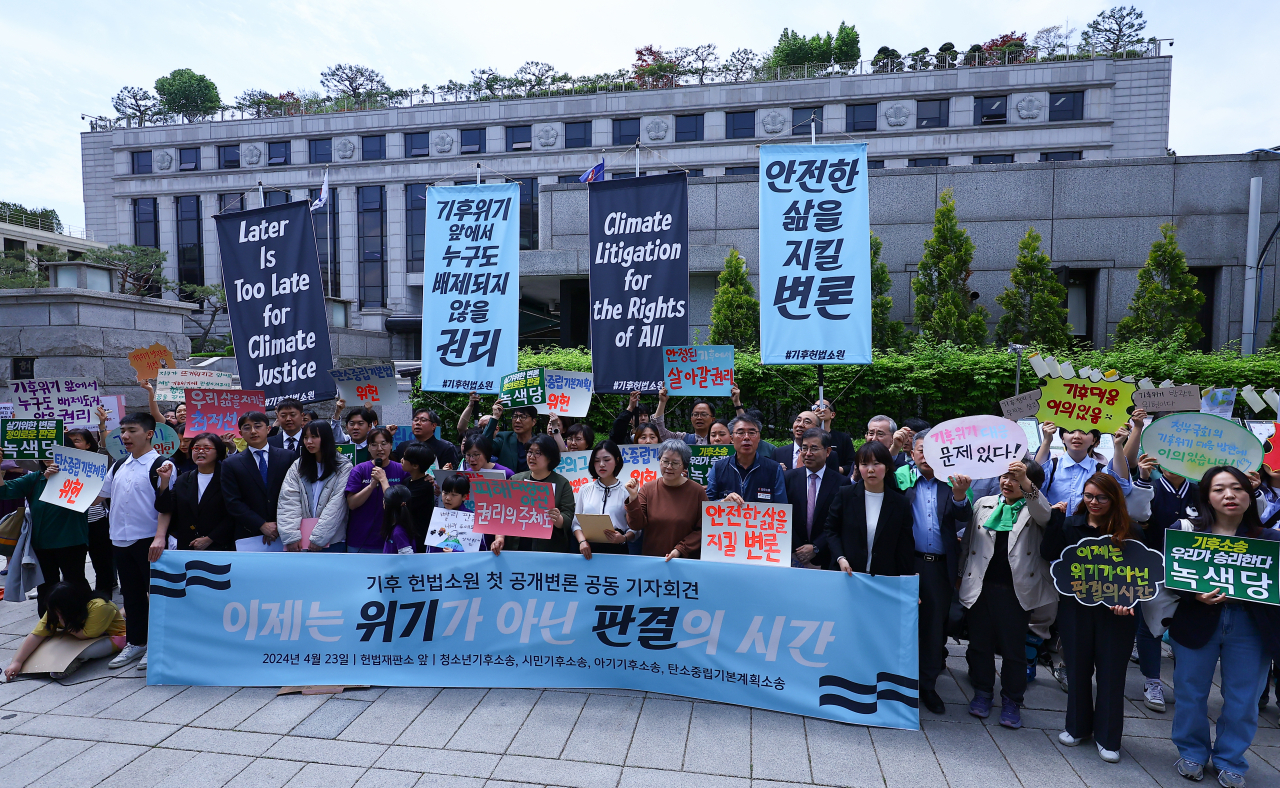 |
Plaintiffs, lawyers and activists gather outside of South Korea’s Constitutional Court in Jongno-gu, central Seoul, ahead of a public hearing concerning a climate lawsuit on April 23. A total of four lawsuits have been filed against the government for violating people's human rights by not effectively tackling climate change. (Newsis) |
Nine out of 10 Korean nationals believe that South Korea is now facing a climate crisis, according to survey results released by the Korea Meteorological Administration on Tuesday.
According to the survey, 89.9 percent of respondents answered that Korea is in the midst of a climate crisis and 90.1 percent of respondents answered that they feel the impacts of climate change directly, due to extreme weather events such as prolonged heat waves.
In January, the KMA stated that 2023 was Korea’s “hottest year on record,” with the average annual temperature reaching 13.7 degrees Celsius -- the highest recorded by the KMA since 1973. April 2024 was also Korea’s hottest April since the KMA began keeping meteorological records 50 years ago. The average temperature this past April was 14.9 C, higher than the previous record of 14.7 C in 1998.
Other abnormal weather phenomena cited by respondents included heavy rainfall, extreme cold and abnormally high temperatures during winter and changes in the ecosystem such as an increase in the number of certain insects.
Some 30 percent of respondents also cited infants and children as the age group most likely to be affected by climate change. With global average temperatures projected to rise 4 C by the second half of the 21st century, concerns regarding infants' and children’s vulnerability to the climate crisis have consistently been raised.
Nearly 27 percent of respondents also stated that older people would most likely be affected by climate change. Respondents who chose infants and children cited them having a “longer future ahead” as their reason, while those who chose older people mentioned that they “would be the most affected healthwise.”
If the climate crisis continues to persist in Korea, 53.8 percent of respondents answered that persisting heat waves would cause the most damage, followed by 27.5 percent of respondents answering torrential rain and floods.
Additionally, 92.6 percent of the respondents agreed that monitoring and predicting how climate change is expected to unfold in Korea is important to respond to the climate crisis, citing heat and cold waves as weather phenomena that must be monitored so as to predict them. As for areas where forecast information about climate change-related phenomena are the most necessary, the responses were evenly split with 19 percent citing “preventing natural disasters,” 17.4 percent answering “tracking weather phenomena” and 15.7 percent mentioning “agriculture and livestock.”




![[Herald Interview] 'Trump will use tariffs as first line of defense for American manufacturing'](http://res.heraldm.com/phpwas/restmb_idxmake.php?idx=644&simg=/content/image/2024/11/26/20241126050017_0.jpg)


